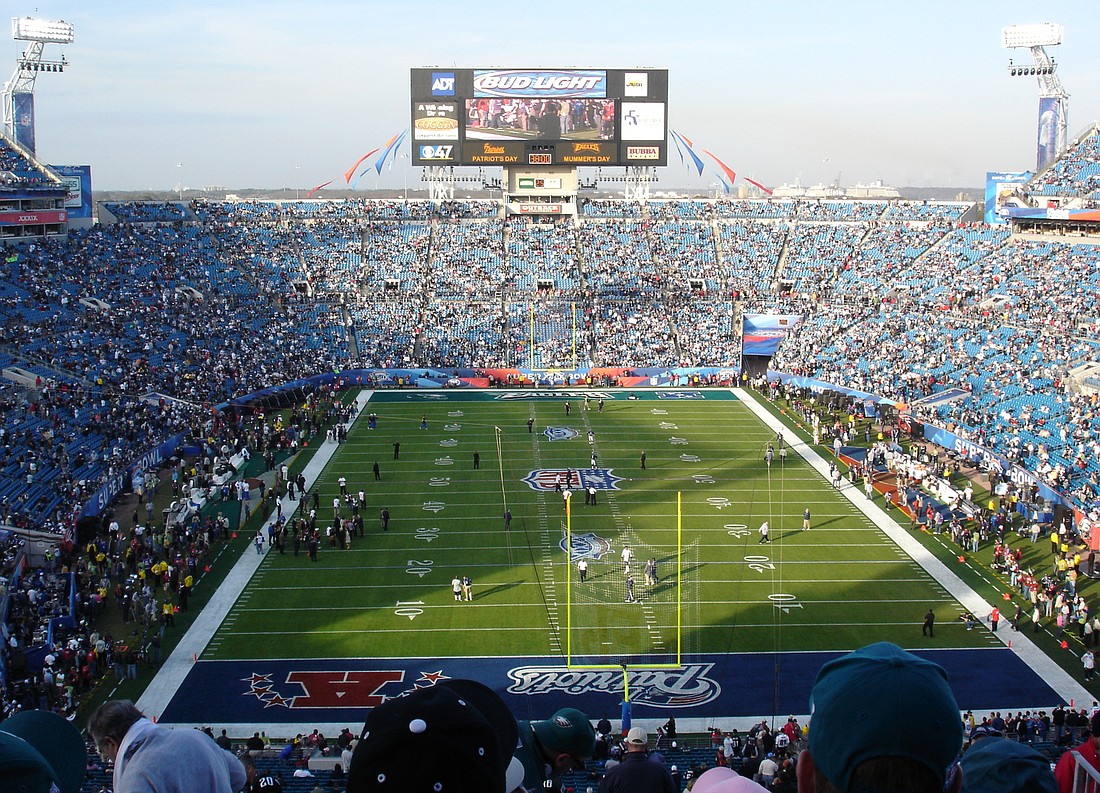
By Andrew Scott
The JBA Young Lawyers Section Board of Governors
For only the second time in franchise history, the Jacksonville Jaguars on Sunday hosted a home playoff game. Although I have had my fair share of disappointment with the Jaguars (mainly through the dreaded Gus Bradley era), my family and I remain season ticket holders.
Unfortunately, that level of commitment did not exist for plenty of other Jaguars fans, which was evident in seasons past by the half-empty stadium year in and year out.
Yet, now that the Jaguars are actually good again, the city has been buzzing and appears to have been reinvigorated.
So, aside from civic pride and serious bragging rights — that’s right Colts, Texans and Titans — are there any economic impacts associated with playoff appearances, Super Bowl appearances and hosting the Super Bowl?
The short answer: Barely, if any.
In a 2001 study, “The Economic Impact of Postseason Play in Professional Sports,” it was concluded that real per-capita income in cities with professional sports teams from 1969-97 showed that postseason appearances were not associated with any change in the level of real income in those cities.
However, in the city that was home to the winning team from the Super Bowl, annual personal income was found to be higher by about $140, which perhaps reflected a link between winning the Super Bowl and the productivity of workers in the cities.
One would think that hosting a Super Bowl would lead to far different results. I mean, the event has practically become a national holiday.
However, the study found that hosting the Super Bowl had no measurable impact on income in the host city. This is contrary to numbers that often are espoused by the NFL and host city government officials.
The main problem is that capacity constraints in a city lead to what is called “leakages.” A lot of the money fans spend in a host Super Bowl city, flows or “leaks” right out of the host city to far-off corporate headquarters.
As told by Sports Illustrated writer John Donavan, a rather dramatic example came in 2005, when Jacksonville hosted the Super Bowl.
To alleviate the shortage of hotel rooms, the host committee arranged for six cruise ships to dock in the area, providing lodging for up to 7,600 guests. However, after the big weekend, the cruise ships pulled up anchor and sailed away, taking revenue they generated with them.
As a result, all spending that occurred on the ships was subject to nearly 100 percent leakage from the Jacksonville economy.
Given that, if a Super Bowl is not likely to have any real economic impact on a host city, it is doubtful that the Jaguars home playoff game on Sunday had any real economic impact on Jacksonville.
However, you can tell Jacksonville is excited for the Jaguars as shown by the fact that playoff tickets sold out in about two hours after they were available to the general public.
That being said, I think the city will continue to buzz with excitement, particularly if the Jaguars have another winning season. I do not think people will celebrate victories by merely going home afterward, which will mean more money funneled into the local economy. So, sit back and enjoy, it has been a long time coming, Jacksonville.
Go Jaguars.
Andrew Scott is an attorney at Murphy & Anderson practicing in the areas of personal injury, civil litigation and commercial litigation.